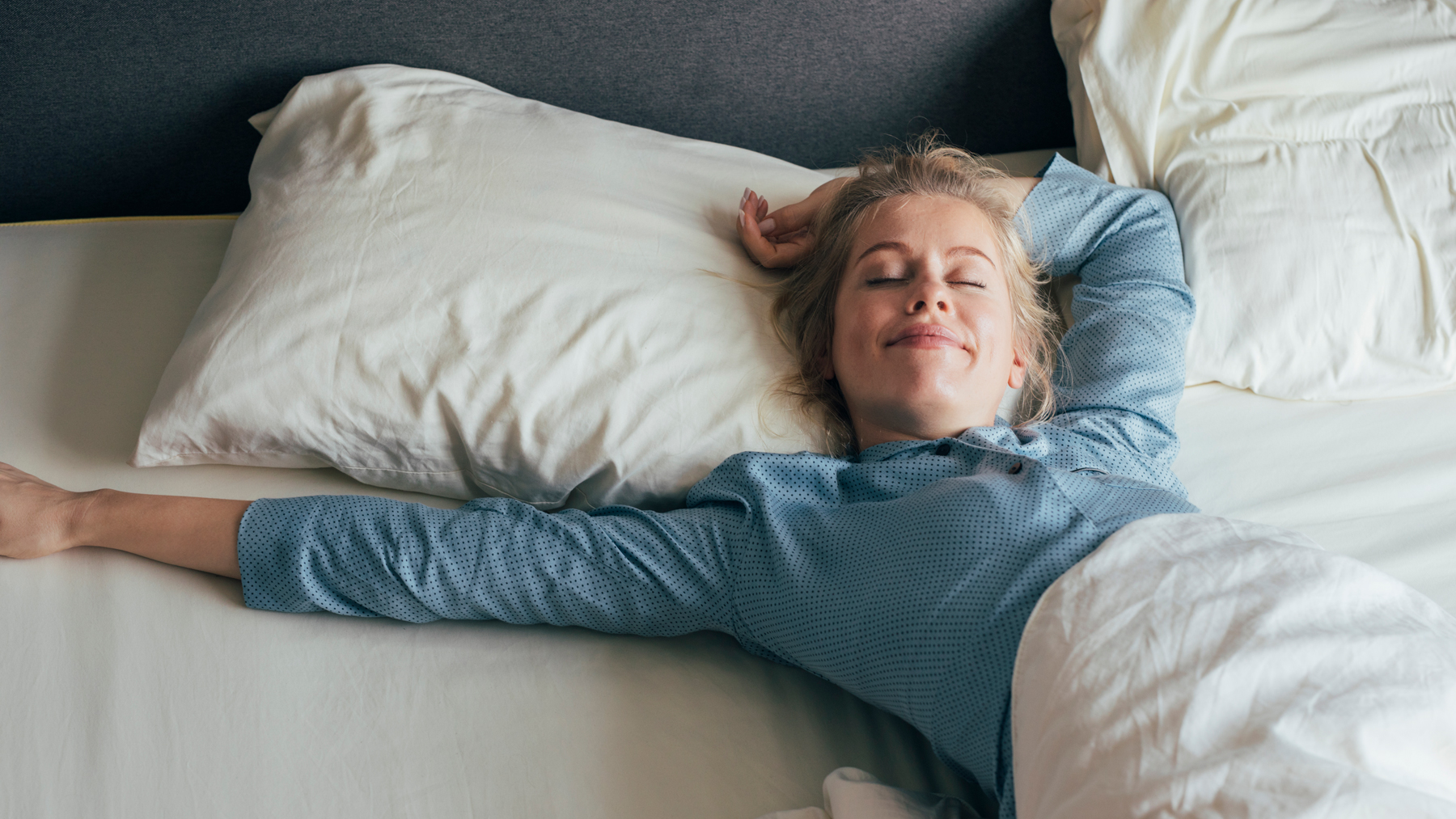Better sleep means better gut health, here’s why
Research reveals that prioritizing a healthy sleep schedule could be key to preventing bad gut health


Start your week with achievable workout ideas, health tips and wellbeing advice in your inbox.
You are now subscribed
Your newsletter sign-up was successful
While it can be tempting to stay up late over the festive period partying, baking festive treats, or watching your favorite Christmas movie, it is important that you don't sacrifice your sleep schedule for this. Science has found that sleep health and gut health are closely linked.
Another factor that can disturb your sleep schedule over winter is the lack of natural sunlight available to help you wake in the morning. Fortunately, you can use a best sunrise alarm clock as a substitute for this, it aims to work with the body's natural circadian rhythm to help your wake-up period feel more organic.
Scientists from Nova Southeastern University (NSU) conducted research to find out more about the relationship between our insides and our quality of sleep. The research team discovered that a poor night's sleep can negatively impact your gut microbiome.
The gut microbiome is essentially all of the microorganisms (viruses, fungi, bacteria and protozoa) and their genetic material found inside your gastrointestinal tract (also known as the digestive tract).
Eve Kalinik, Nutritional Therapist and Gut Health Specialist for KÄLLA probiotics said, "The human microbiome refers to the collection of all microbes including bacteria, fungi, viruses and their genetic material, that live in and on us. We have several different microbiome communities residing on places such as our skin and mouth, with the largest being in the gut."

The research team from NSU found that those who had a better night's sleep had more diverse gut microbiomes, which means they had better gut health.
Nutritional Therapist and gut-health specialist, Eve Kalinik explained, "Our gut is often referred to as our ‘second brain’ as it is in constant communication with both the brain and the central nervous system, helping to regulate many processes in the body including our sleep."
Start your week with achievable workout ideas, health tips and wellbeing advice in your inbox.
Our gut microbiome has its own daily rhythms that feed into our circadian rhythms, affecting our sleep or vice versa, this means one has the ability to interrupt the other.
However, there are ways to recentre our 'biological beat' and avoid experiencing gut-related symptoms, getting sick, or our emotional wellbeing (the gut can also significantly affect your mood).
Ways to create a better gut-sleep relationship
- Timing is everything - Time Restricted Eating (TRE) has been positively linked with aiding our circadian rhythms as it allows your gut to clean itself out and create a good gut-sleep cycle. Kalinik recommends leaving a 12 to 15-hour period of not eating or drinking anything other than water.
- Eat the rainbow - Make sure your diet is full of color and diversity, with vegetables and fruits, as well as whole grains, nuts and seeds, as these all provide brilliant sources of fibre and polyphenols, which are crucial ‘food’ for our gut microbiome.
- Gentle movement - A lack of physical exercise and sitting for long periods can have a negative impact on the way you sleep and your gut health. But it’s best to avoid high-intensity exercise late into the evening as this can spike cortisol, but walking in natural light first thing in the morning is great as it can help to support our circadian rhythm.
And if you want to make sure you are creating the best sleep environment possible to match up a healthy sleep cycle with a healthy gut, then a best mattress topper is a good way to maximise comfort at bedtimes.
Jessica is an experienced fitness writer with a passion for running. Her career in journalism began in local news and she holds a Masters in journalism. Jessica has previously written for Runners World, penning news and features on fitness, sportswear and nutrition.
When she isn't writing up news and features for Fit&Well covering topics ranging from muscle building, to yoga, to female health and so on, she will be outdoors somewhere, testing out the latest fitness equipment and accessories to help others find top products for their own fitness journeys. Her testing pairs up nicely with her love for running. She recently branched out to running 10Ks and is trying to improve her time before moving on to larger races. Jessica also enjoys building on her strength in the gym and is a believer in health and wellness beginning in the kitchen. She shares all of this on her running Instagram account @jessrunshere which she uses for accountability and for connecting with like-minded fitness lovers.
